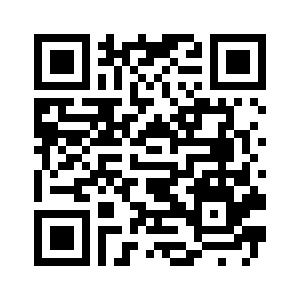Library in the Sky
Did you know that it takes the average person about 30 minutes or more to realize they lost their wallet, but less than 3 minutes to realize they lost their phone? Imagine if we applied this same principle to students and novels they read for literature class. From my personal experience as an English teacher, they realize they lost/forgot/the dog ate their book about 3 seconds before class starts and find out they have an open book quiz. How many of your students would not know where their phone/iPod is at any given moment? Sure they are supposed to be locked safely away in their lockers, but you know they have it in their pocket or purse.
Why not harness the power of this in your classroom?
Try this – next time you assign a classic work of literature have this on your board at the start of class:
You most likely will not even need to instruct you students, they will pull out their phones and instinctively scan it with their QR code reader app and boom – you just got them to instantly access a classic work on their phone. Sneaky, yes, but now you have their attention – and it will be a lot harder for them to lose the book.
This particular code takes you to Hamlet, but Project Gutenberg has thousands of others if you don’t like that one.
Here’s another idea, during national poetry month, get QR codes from Project Gutenberg for great works of poetry, print them out, and post them around the school. Don’t put any explanation, just print out the code and post it. Or, if you are feeling really adventurous make your own codes and link to site of modern poets such as Maya Angelou or Shel Silverstein. You can use the Google URL shortener http://goo.gl/ to create your QR Code. Visit my Diigo page for more http://groups.diigo.com/group/lost-in-it, or add your own.
Happy reading!